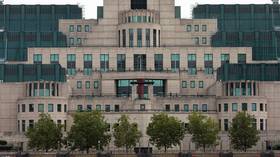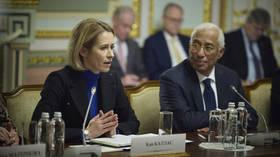‘Nuclear weapon of bad ideas’: US, UK & Australia demand Facebook give backdoor access to WhatsApp & other encrypted messengers
US Attorney General William Barr and other western officials are calling on Facebook to provide authorities backdoor access to its encrypted messenger platforms, used by hundreds of millions of people around the world every day.
In an open letter to Facebook CEO Mark Zuckerberg, Barr and his British and Australian counterparts will argue that law enforcement requires access to encrypted applications, effectively asking the company to hand over the keys to the private communications of 300 million daily WhatsApp users, as well as 1.5 billion who log into Facebook every day. The letter is dated Friday, but An advance copy was seen by the New York Times.
“Companies should not deliberately design their systems to preclude any form of access to content, even for preventing or investigating the most serious crimes,” the officials wrote.
Though the Facebook-owned messenger WhatsApp is already protected by end-to-end encryption, the open letter will also urge the company to delay rolling out similar features for its other chat platforms, Facebook Messenger and Instagram Direct, asking for access akin to a phone wiretap.
Also on rt.com US-led ‘Five Eyes’ intel alliance says end-to-end encryption creates terrorism & child abuse threatsThe officials argued the request on the grounds of fighting crime and terrorism, but privacy advocates warned the move could seriously damage, or even “destroy,” the ability to communicate privately online, and empower governments with vast, easily abusable spying powers.
National Security Agency (NSA) whistleblower Edward Snowden – who leaked classified material on the agency’s sweeping mass surveillance programs in 2013 – slammed the officials for what he said “may be the largest overnight violation of privacy in history.”
Oh hey, turns out it's even worse; it's more than just #WhatsApp, it's all FB-owned messaging: "Attorney General William P. Barr is set to press @Facebook on Friday to create a so-called back door to its end-to-end encryption on WhatsApp ***AND OTHER MESSAGING PLATFORMS***"
— Edward Snowden (@Snowden) October 3, 2019
Any politician asking for backdoor access to your private information is a politician that doesn’t give a damn about you or your safety.Vote out ANYONE asking for this, Republican or Democrat. It’s the nuclear weapon of bad ideas. https://t.co/v0UbCjik1C
— Brianna Wu (@BriannaWu) October 3, 2019
The Intercept’s Glenn Greenwald called on conservatives who “cheered the Snowden revelations” to speak out against the move, which he said was an “attempt to destroy privacy and place unprecedented spying power in the government's hands.”
Conservatives claiming to value privacy, to support a limited governmental role in our lives, and who cheered the Snowden revelations during the Obama years should be most outraged by this attempt to destroy privacy and place unprecedented spying power in the government's hands: https://t.co/zKrMb7214k
— Glenn Greenwald (@ggreenwald) October 3, 2019
The open letter is far from the US Department of Justice’s first move against encryption. In July, AG Barr called on technology firms – at one point citing WhatsApp by name – to erode protections and provide access to law enforcement, comments soon echoed by FBI Director Christopher Wray, who said he shared Barr’s “concerns.”
Also on rt.com End of WhatsApp? Users threaten to quit over Zuckerberg’s latest money-making ad planDOJ’s obsession with “back door” access to encrypted messaging apps predates the Trump administration. Former FBI Director James Comey has advocated it on multiple occasions and famously tried to compel tech giant Apple into unlocking the iPhone of the San Bernardino terrorist suspect in 2015, but ended up paying an Israeli company to do so instead.
Like this story? Share it with a friend!














